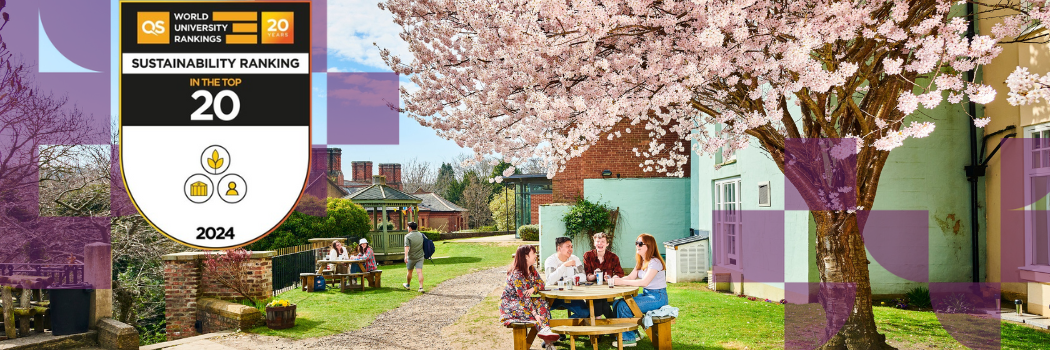
We've been named one of the best universities in the world for sustainability.
The 2024 QS World University Rankings for Sustainability have placed us 19th out of 1,403 global universities and fifth best in the UK.
This is the second year that QS has compiled its sustainability rankings and we've jumped up the table from 53rd out of 700 universities last year.
The rankings are compiled using three categories: Environmental Impact, Social Impact, and a newly added Governance category.
This highlights the different ways in which universities are taking action to tackle the world's greatest Environmental, Social and Governance (ESG) issues.
Sustainability goals
We've made major steps forward in sustainability in recent years.
We agreed a new Sustainability Ambition Statement, with two important targets: to achieve net zero carbon by 2035 and biodiversity net gain by 2032.
And last year we launched our Biodiversity Strategy which identifies key targets such as achieving a net gain of biodiverse habitats across the University estate over the next decade.
We have also signed the United Nations Sustainability Development Goals (SDG) Accord.
The SDGs provide a blueprint to achieve a more sustainable future by encouraging organisations and individuals to address global challenges.
We've mapped the SDGs onto our research, teaching, wider student experience and global activities.
New University buildings are also built with sustainability in mind.
International approach
We're one of the founder members of the Nature Positive Universities Network, which was established at the UN Biodiversity Conference (CBP-COP15) in Montreal, Canada, in 2015.
We were awarded official observer status at COP26 and since then we've sent a delegation to each Conference of Parties.
This year we sent six delegates to COP28 in the UAE, including experts who spoke about climate change and how research on sea-level rise can help influence international policy and law-making.






